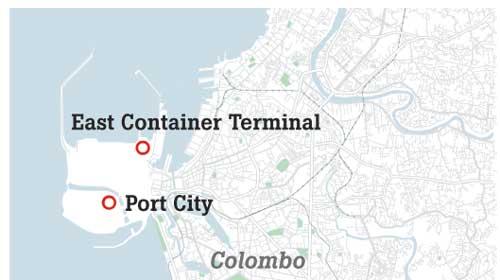Reply To:
Name - Reply Comment
After every hustings, when the administration changes hands from a Sri Lanka Freedom Party (SLFP)-led administration to one led by a United National Party (UNP) government,  opposition political parties, trade unions and even civil society organisations have accused the UNP-led regimes of selling vital sections of the economy to either the private sector or to foreign interests.
opposition political parties, trade unions and even civil society organisations have accused the UNP-led regimes of selling vital sections of the economy to either the private sector or to foreign interests.
More recently, the country has been witnessing a different type of sell-off of its assets. During the JR Jayawardene era, the then UNP-led regime was forced by India to hand over the strategic oil farms at Trincomalee. Over a year-and-a-half ago, the present UNP-led regime bartered away the non-performing but strategic port of Hambantota and a large parcel of land to China as a form of debt repayment on loans taken by the Rajapaksa regime. China has also been given de facto control of Colombo’s new ‘Port City’ a financial hub built on a piece of land reclaimed from the Sea off Galle Face Green, adjacent to the port of Colombo.
A few months ago, we witnessed an Indo-Japanese entry into the Colombo Port’s East Terminal, and now we are witnessing an attempt to hand the country in its entirety to the US via a controversial agreement termed a ‘Status of Forces Agreement’(SOFA), an agreement the US is proposing to the Acquisition and Cross Services Agreement (ACSA) initially signed in 2007 and renewed in 2017. SOFA permits entry of US forces, land, sea and air, US personnel wearing service uniforms, bearing arms, exemption of taxes for use of radio frequencies, licences and customs regulations. SOFA is NOT a security arrangement; rather, it establishes the rights and privileges of US personnel present in a country.
SOFA grants US military personnel, US military contractors and US military suppliers the same perks and privileges granted to technical and administrative officers of the US Embassy. The agreement also allows the above-mentioned personnel to enter the country with only a US-Government issued ID card.
The Janatha Vimukthi Perumana (JVP) rightly points out that, SOFA, if implemented would take away Sri Lanka’s right to inspect any US vessels (aircraft or naval vessels) that enter Sri Lanka, adding, Sri Lanka will not be able to prosecute any of the personnel under Sri Lankan law for any offence, and that Sri Lanka would not have authority to inspect whatever they bring in or take out of the country. One of the best examples of the possible erosion of a country’s rights under the infamous ‘Security of Forces Act’ (SOFA) was best exemplified by the Raymond Davis ‘incident’ in Pakistan.
In April 2013, Davis, a US contractor opened fire on Pakistani civillians in Lahore. Driving in Lahore, Davis shot at two men riding a motorbike, who approached his car. He claimed they were armed. Davis took his semi-automatic Glock pistol and shot through the windshield, hitting one of the men numerous times. As the other man fled, Davis got out of his car and shot several rounds into his back. Under pressure from then US President Obama, the assailant was flown out of Pakistan under cover of ‘SOFA’ Pakistan had signed with the US.
The Sunday Times quoted Finance Minister Mangala Samaraweera at a news conference referring to SOFA as harmless. He warned, that unless the agreement was signed, Sri Lanka could lose its exports to the US as well as job opportunities! If SOFA was such a harmless agreement why the arm-twisting and threats? And why is this government apparently in such a hurry to sell the country down the drain for a ‘mess of pottage’ in the form of Generalised Scheme of Preferences (GSP).
Perhaps the truth to the story lies elsewhere...
During Minister Marapana’s visit to the US last month, he was briefed by US Under Secretary of State for Political Affairs, David Hale, among the topics discussed was the use of the Indian Ocean through a “rule-based order”... a reference the US uses aimed at neutralising the growing Chinese maritime influence in the seas. The US, in other words is ordering Sri Lanka to back its efforts to curb the economic rise of China and its influence in the region. Sri Lanka, by abandoning its Non-aligned policy of old, has now become a mere pawn on a chess board to be sacrificed by the nexus of India, Japan and America in their proxy war with China.